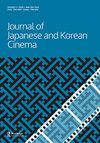Daehan neo-realism and the conundrum of aimless Confucianism in Yu Hyun-Mok’s Obaltan (1961)
引用次数: 1
Abstract
ABSTRACT Yu Hyun-Mok’s Obaltan (1961) is a paragon of what I will term Daehan Neo-realism, which is a South Korean version of Italian Neo-realism. Daehan Neo-realism introduces a homophonic and homonymic linguistic play involving three distinct types of Korean daehan: (1) 大韓 (the great ethnic Han Koreans), (2) 大漢 (the great ethnic Han Chinese), and (3) 大恨 (the great eternal woe). The goal is to reimagine 大韓 without 大漢 or 大恨. The resulting Confucian conundrum arises when the capitalist rule of profit supplants the Confucian rule of virtue. The film’s critique is directed against the evaporating virtuousness of President Rhee Syngman as he abandons democracy in favour of greater authoritarian rule. This creates a scenario where the resulting aimless Confucianism transforms each South Korean into an obaltan (aimless bullet).大汉新现实主义与郁《奥伯尔坦》(1961)中的无目的儒学之谜
柳贤穆的《奥巴坦》(1961)是我称之为大韩新现实主义的典范,它是意大利新现实主义的韩国版本。大韩新现实主义介绍了一个同音同义的语言游戏,涉及三种不同类型的韩国大韩:(1)大汉(伟大的汉族),(2)大汉(伟大的汉族),(3)大悲(伟大的永恒的悲哀)。我们的目标是重新构想没有“汉字”或“汉字”的“汉字”。当资本主义的利润统治取代了儒家的美德统治时,由此产生的儒家难题就出现了。这部电影的批评是针对李承晚总统的美德,因为他放弃了民主,赞成更大的威权统治。这就造成了这样一种情况:无目的的儒家思想将每个韩国人变成了一颗无目的的子弹。
本文章由计算机程序翻译,如有差异,请以英文原文为准。
求助全文
约1分钟内获得全文
求助全文
来源期刊

Journal of Japanese and Korean Cinema
Arts and Humanities-Visual Arts and Performing Arts
CiteScore
0.60
自引率
0.00%
发文量
16
期刊介绍:
Journal of Japanese and Korean Cinema is a fully refereed forum for the dissemination of scholarly work devoted to the cinemas of Japan and Korea and the interactions and relations between them. The increasingly transnational status of Japanese and Korean cinema underlines the need to deepen our understanding of this ever more globalized film-making region. Journal of Japanese and Korean Cinema is a peer-reviewed journal. The peer review process is double blind. Detailed Instructions for Authors can be found here.
 求助内容:
求助内容: 应助结果提醒方式:
应助结果提醒方式:


